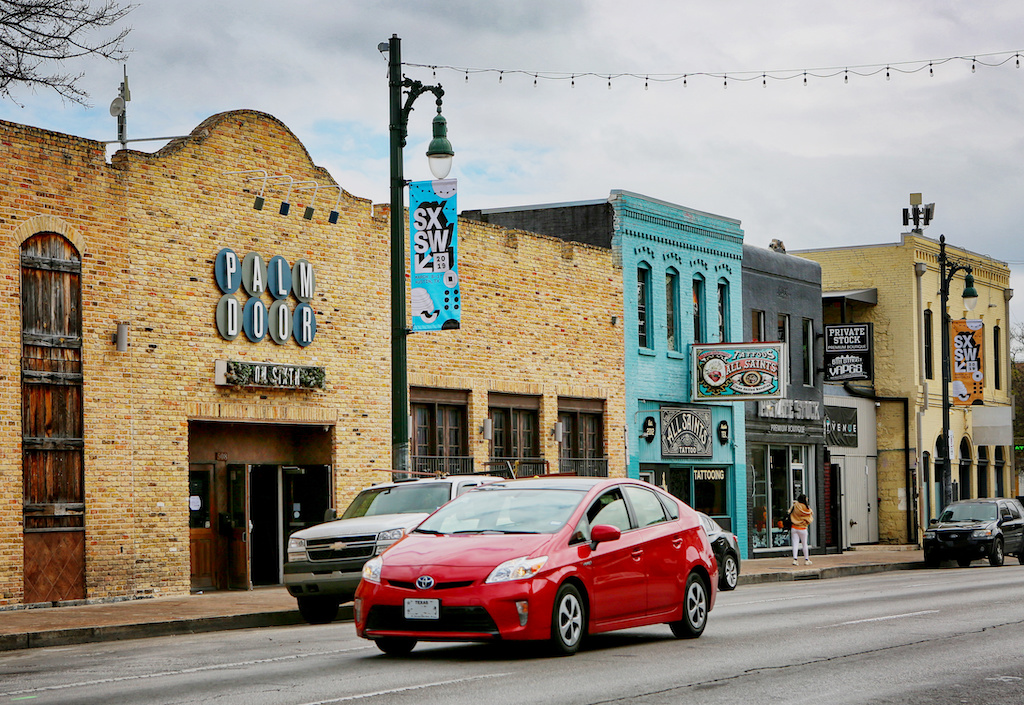When I think of Austin, Texas, I think of music, food, and tech.
Austin City Limits is the longest-running music series in television, having been broadcast on PBS for 43 years. Twenty years ago, the show spawned the ACL Music Festival, which hosts over 130 artists and 225,000 patrons every year at Zilker Park. SXSW (aka South by Southwest) hosts the annual SXSW Festivals, celebrating the worlds of film, music, and comedy with parties, awards, screenings, and showcases.
If you enjoy dining out, the city is a foodie’s paradise. A 2015 article in Travel + Leisure magazine, “It’s Official: Austin is America’s Next Great Food Town,” stated “a renegade wave of talented chefs with Texas-size ambitions and rock-and-roll swagger is turning Austin into the country’s next seat for great food.” The article continues with a history of the evolution of barbecue, farm-to-table, fusion, sushi, and numerous other dining options in the city. For a much bigger and better list of the “Best Places to Eat in Austin in 2020,” the Austin Food Blogger Alliance created a site that will lead you to the best food, no matter what your preferred cuisine may be.
There are some that may argue that the tech community spawned the music and food community in Austin, while others argue that it’s the other way around. Regardless, tech has been a big part of the Austin scene for the better part of three decades. Most people may be familiar with the story of Michael Dell founding Dell Computer out of his UT Austin dorm room in 1984, but very few probably know that the venture capital funding for tech startups in Austin continues to increase.
In the first quarter of 2016, there were 97 startups in Austin that received $316M in funding. By the first quarter of 2019, 71 startups in Austin received $578M. Crunchbase writers report that the larger average size per deal in 2019 versus 2016 indicates that the venture scene in Austin continues to mature.
Spokespersons for companies relocating to Austin use adjectives like tech-forward, innovative, creative, talent, culture, affordable cost of living, desirable housing costs, and quality outdoor activities to describe their reasons for moving. Among the cost-of-living benefits, there is no state income tax for individuals in Texas.
It’s not just small companies that relocate or form in Austin. In December of 2020, software giant Oracle Corporation, a $180 billion company, announced that it is relocating its corporate headquarters from the San Francisco area to Austin.
Billionaire Elon Musk, the founder of Tesla, SpaceX, and the Boring Company among other entities, announced in December that he is moving to Austin after announcing the city as the site of a new Tesla assembly plant in August. SpaceX and the Boring Company already have locations in the area. Among other California companies with large operations in Austin are Apple, Facebook, Google, IBM, and Samsung.
It didn’t take announcements from Oracle or Elon Musk to convince me to move to Texas. I was ahead of them by a year. Although the last nine months of pandemic-induced social distancing has curtailed in various degrees the live music festivals and bar scenes, many restaurants have remained open, either in reduced indoor seating, offering carryout only, or offering outdoor dining only. Despite an incredible disruption to their normal operations, everyone that I’ve met while dining at many Austin area restaurants has a friendly, upbeat attitude.
So it surprised me when I read a January 20th Business Insider headline, “I moved my family from California to Austin, Texas and regretted it. Here are 10 key points every person should consider before relocating.” Written on his personal blog in 2016, Brett Alder’s article was picked up five years later by Business Insider. The editors are quick to note that it’s an opinion column.
Mr. Alder writes that the thing that Austin and California have in common is that they are both very expensive. He and his family moved from San Diego to this area in 2015. He upgraded from a 2,000 square foot house to a 4,000 square foot house with a pool (that would be trading up, not down, in my opinion). His property taxes were 1.79% in Austin vs. 1.25% in San Diego.
Utilities were also much higher in Austin. He was paying $400/per month during the summer and winter and should have set the cooling temps lower for more comfort. Water was more costly in Austin with a bill including watering 10,000 square feet of grass ranging between $300-400 per month.
His top 10 key points were:
- The weather
- No public land
- Nowhere to go
- Dishonesty
- Yelp
- Rudeness
- A conservative dystopia
- Monoculture
- Punitive, militaristic schools and sports
- Cedar allergies
Alder also adds an 11th key point: many Austinites have an obsession with big, luxurious homes and keeping them immaculate.
After reading them, I won’t choose to debate them because I believe most of them to be based on his personal experiences. Instead, I’ll provide a few personal perspectives.
It is hot here in July, August, and September. But it’s been nearly 70 nearly every day in January with temperatures dipping into the 40s most nights. It may be more humid than California, but it’s a lot less than Baltimore and DC and much less than Houston and New Orleans. I knew my property taxes would be higher than Maryland, but having no state income taxes here more than offsets the gap.
I haven’t met anyone yet who meets any of the adjectives “dishonest, rude, or conservative,” and the culture is decidedly not a monoculture. I chose to live in South Austin, which is a pleasant mixture of people, places, houses, restaurants, and everything else. Most of the housing lots are small, so the houses here are smaller than most of the Austin suburbs. Because of the scarcity of available land, housing costs in this area are higher than I experienced in Maryland.
Downtown is a one-mile walk, easy to do except maybe in July, August, and September. There are at least 30 restaurants within walking distance from my home in South Austin. Being able to walk to many places offsets the smaller home size. The pandemic hasn’t stopped people from walking, in fact, it may have increased the numbers of people walking for exercise, a mental health break, or just another reason to enjoy the lovely weather.
Like many cities, Austin is comprised of a number of neighborhoods. In addition to reading about them through realtor guides, the city offers a comprehensive guide to all neighborhoods including zoning plans. Clearly, there’s an inclination by the city to preserve what’s good (live oak trees are at the top of the list), and a lot of information is available for those who care to look it up. My neighborhood has an association (not a homeowners’ association, but a neighborhood association that accepts voluntary dues) that keeps us up-to-date on activities like zoning hearings through a listserv email distribution. They also remind us of bulk recycling days (versus the regular recycling collection) and notify us of any crime in the area. With so many people moving into Austin, it’s not an oddity to see people leaving excess or outdated furniture at the edge of their property with a “free” notice.
Austin voters passed a bond issue in the fall of 2020 to fund a new metro system. The bonds will be repaid through an increase in property taxes. How many communities across the country are approving tax increases to fund big projects like a metro system?
Unlike Mr. Alder, I retired so I did not move to this area for employment. However, Austin’s vibrancy is evident everywhere. A quick Google search located these recent articles:
- “Best Cities to Work from Home” (Austin is #9)
- “2021’s Best & Worst Cities for an Active Lifestyle” (Austin is on the Best List at #7)
- “In stormy times, these 15 U.S. cities make jobs happen” (Austin is #2)
- “Best College Towns & Cities in America” (Austin is #2 overall and #1 in cities over 300,000 people)
- “Driving Innovation and Business Transformation – 2020 Report” (Austin ranks 15th worldwide and 8th nationally in ranking the Top 25 Global Innovation Hubs)
- “Entrepreneurs thrive in these 10 U.S. cities – and 9 aren’t in Silicon Valley” (Austin ranks #8 and 2 percent of all U.S. entrepreneurs live in Austin)
I can’t wait for the pandemic to end so I can explore all that the city has to offer. My neighbors are great, and I look forward to spending time with more of them. I’m sure there are skeptics like Mr. Alder, but from my vantage point, the pros far outweigh the cons.
While I’m not ready to take on the role of Austin tour guide, I am enjoying being an understudy and I look forward to hosting friends who visit the area in the future. Feel free to comment if you have pros or cons from your personal Austin experiences.











